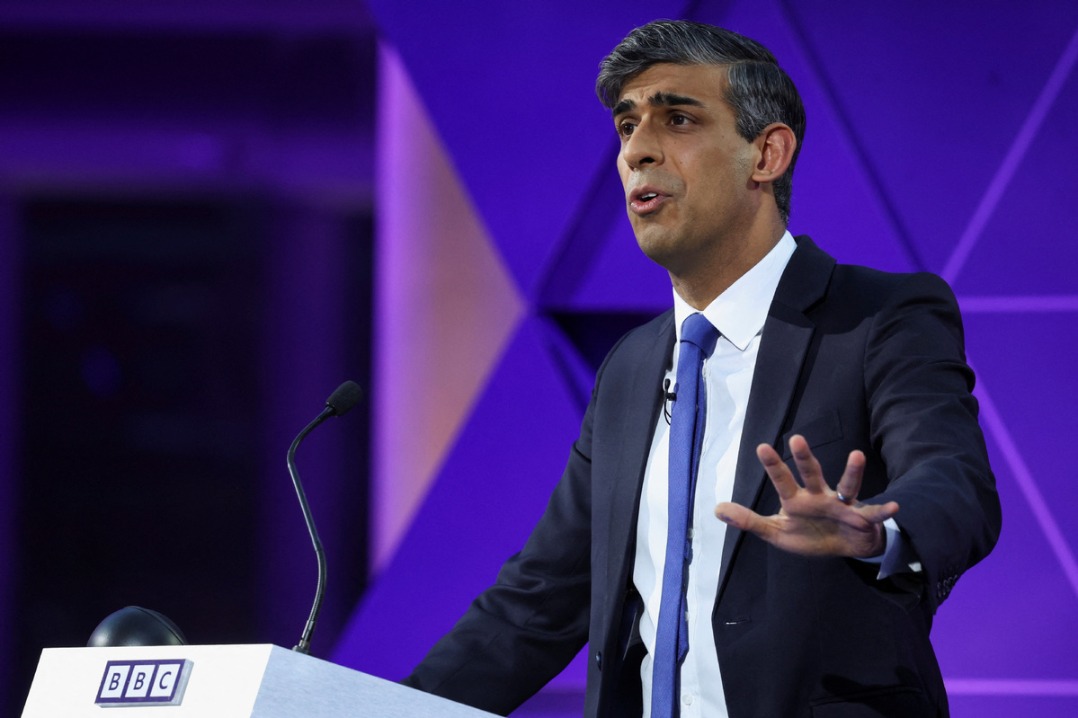Gambling controversy overshadows UK election campaign

As the United Kingdom’s general election campaign enters its final week before voting on the make-up of the next Parliament takes place on July 4, the political issues the parties would like to focus on remain overshadowed by the issue of betting by political insiders.
The Conservative Party has withdrawn its backing from two candidates after it emerged they had allegedly placed bets on the date of the election, which came as a surprise to most people when Prime Minister Rishi Sunak announced it on May 22.
One of those candidates is a close political associate of Sunak’s, and the other is the wife of the Conservative Party’s campaign director. A police officer serving in Sunak’s personal protection squad has also been suspended from duty over similar gambling allegations.
Despite Sunak saying last week that he was “incredibly angry”, it took the Conservatives nearly a week to take any action, and neither of the two candidates has been suspended by the party.
As it is too close to polling day to make changes, their names will still appear on next week’s ballot papers as Conservative Party candidates, but for the rest of the campaign, they will not be allowed to call themselves Conservatives, or use any party resources.
The BBC’s Newsnight program has reported that up to 15 Conservative Party candidates and party officials are now being investigated for alleged betting.
When the issue first emerged, and before Sunak took action, Keir Starmer, leader of the main opposition Labour Party, said that had the candidates involved been standing for his party, they “would have been straight out of the door” and their “feet wouldn’t have touched the ground”.
However, the story then took another unlikely turn when it was announced on Tuesday that a Labour Party candidate was being suspended for election-related betting — but in very different circumstances to the two Conservatives.
Kevin Craig, who is standing in a seat previously held by the Conservative Party, which is expected to win it back, had reportedly placed a bet against his own chances of winning.
“I deeply regret what I have done and will take the consequences of this stupid error of judgment on the chin,” he said.
Robert Peston, the political editor of the ITV television channel, observed that Starmer’s actions, intended to show decisive leadership, could just make the problem worse, and prolong the story.
“It is widely believed that betting by candidates on themselves is rife … if the (Gambling) Commission now requests that data from the betting companies, this could turn into a scandal on the scale of the MPs’ expenses scandal,” he wrote. “GambleGate, or whatever on earth it’s called, will now run all the way to the election and beyond — with who knows what harm to which parties and which politicians.”
Related
Best Crypto Casinos UK – Top 10 Bitcoin Gambling Sites…
Despite its overwhelming popularity, crypto gambling in the UK remains in a legal gray area. All casino operators in the UK need to have a valid permit, as requ
Online gambling channelisation in the UK – How well it…
Gambling in the UK is controlled under the Gambling Act 2005. This act requires all gambling operators to be licensed and regulated by the UK Gambling Commis
UK Gambling Commission Opens White Paper Public Feedback | Suffolk…
The UK Gambling Commission (UKGC) has initiated its third consultation period to gain feedback and proposals to make gambling machines in the UK more secure a
Paddy Power High Court case: Gardener wins £1m payout
Mrs Durber sued PPB Entertainment Limited, which trades as Paddy Power and Betfair, for breach of contract and for the rest of her winnings, based on what she w












